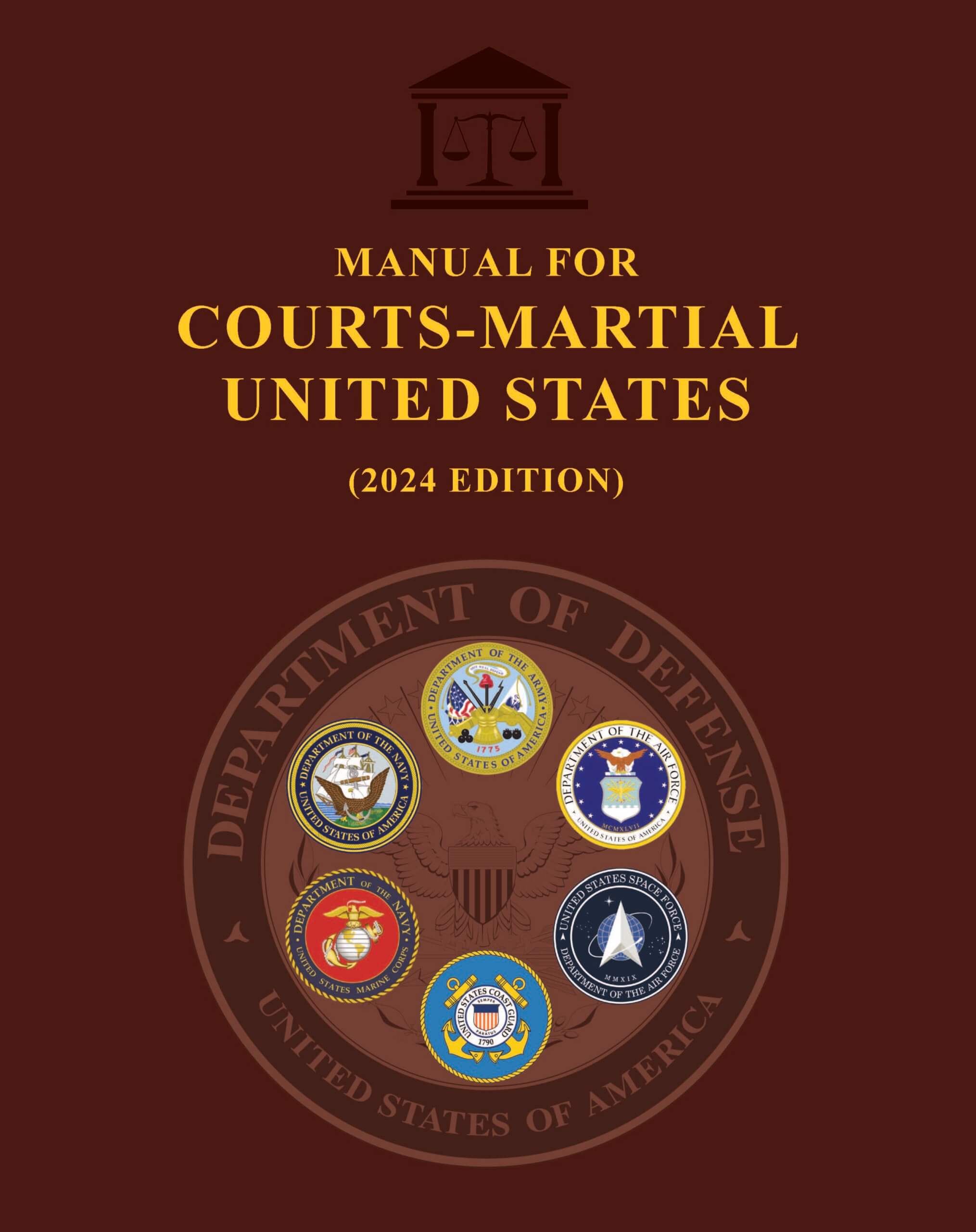Skip to main contentTexas Stacking Sentences in Sexual Offenses
Nguyen v. State.
Section 3.03(b)(2)(B) of the Texas Penal Code authorizes consecutive sentences when the State convicts a defendant of multiple sex crimes arising from the same criminal episode. An interesting situation occurred when Appellant was charged in two separate indictments with aggravated sexual assault and sexual assault of two of his daughters. While the initial charges fell under Section 3.03(b)(2)(B), Appellant pled guilty to two counts of injury to a child (not a sex offense). He received a five year deferred adjudication sentence. Five months after he was placed on community supervision, the State filed a motion to revoke based on a violation of the “no contact” condition. The Judge revoked Appellant’s community supervision and sentenced him to 10 years confinement in each of the two cases, to run consecutively. Appellant appealed the sentence, arguing that Section 3.03(b)(2)(B), authorizing consecutive sentences in sex crimes cases, did not apply to his convictions because he had not been “formally” convicted of a sex offense.
The primary language at issue in the case was the portion of Section 3.03(b)(2)(B) that stated:
“(B) for which a plea agreement was reached in a case in which the accused was charged with more than one offense.”
The State argues that this provision, by its plain language, permits the trial judge to impose consecutive sentences for multiple nonsexual offenses if the defendant was originally charged with qualifying sexual offenses. Appellant argued that because 3.03 (b)(2)(A) excludes any nonsexual offense, the legislature never intended to authorize consecutive sentences for nonsexual offenses.
The Texas Court of Criminal Appeals held that the statutory language of Section 3.03(b)(2)(B) was ambiguous as to the specific issue brought up by Appellant’s case. Finding that the language of the statute was ambiguous, the Court looked to the legislative intent behind passing Section 3.03(b)(2)(B). The Court explained that,
the history shows that the legislature enacted this provision to ensure that defendants who, pursuant to a plea bargain, are placed on deferred adjudication for certain sex offenses are subject to the same requirements, disabilities, and punishments that had previously been applied only to those formally ‘convicted’ of a sex offense.
This case showed the willingness of the CCA to read a statute as a whole and to look to the legislative intent of the entire section vice a small portion. In the law, as in politics and elsewhere, a sentence or two taken out of context can be a dangerous thing.
The “charged with” language could have been easily misconstrued by isolating only subsection (B) and reading it apart from the rest of Section 3.03. It can also be misconstrued to not only read it in isolation, but to ignore the legislative intent behind the statute in the first place. Like anything, small snippets of statutes can be isolated and taken out of context. The State tried to capitalize on another poorly worded statute but the CCA looked past that argument to determine the meaning of 3.03 as a whole.
Finding that Section 3.03(b)(2)(B) refers only to plea bargain agreements resulting in convictions for child sex offenses, the CCA agreed with the Court of Appeal’s decision to modify the trial court’s judgment and ordered Appellant’s sentences on his two convictions for injury to a child to run concurrently.

 Texas Penal Code Section 22.021(a) provides that a person commits aggravated sexual assault if the person intentionally or knowingly causes the penetration “by any means” of the anus or sexual organ of a child younger than 14 years of age. Section 22.021(d) provides that “it is a defense to prosecution…that the conduct [constituting the offense] consisted of medical care for the child and did not include any contact between the anus or sexual organ of the child and mouth, anus, or sexual organ of the actor[.]
Texas Penal Code Section 22.021(a) provides that a person commits aggravated sexual assault if the person intentionally or knowingly causes the penetration “by any means” of the anus or sexual organ of a child younger than 14 years of age. Section 22.021(d) provides that “it is a defense to prosecution…that the conduct [constituting the offense] consisted of medical care for the child and did not include any contact between the anus or sexual organ of the child and mouth, anus, or sexual organ of the actor[.]
During the trial of Walter Cornet, for the alleged aggravated sexual assault of his eight year-old step-daughter, the defendant sought to use the medical care defense. The defendant alleged that after his step-daughter complained to him that her older brothers had had sex with her, he, acting as a parent, conducted an examination of her genitals (anus and labia) using his fingers. The trial court refused to instruct the jury on the medical care defense. The defendant was convicted.
On appeal to the 8th District Court of Appeals (El Paso), the Court affirmed the conviction and held that:
the [medical care] defense “is not meant to apply…in cases…when the parent suspects his child has been sexually abused and proceeds, without any medical education, training, or experience, to examine the area.”
The Texas Court of Criminal Appeals accepted appellant’s petition for discretionary review to settle the issue. Can a parent, untrained in the medical field, claim the medical care defense, under Section 22.021(d) of the Texas Penal Code? The CCA said YES and overturned the 8th Court’s decision.
Writing for a 5-4 majority (on this issue only), Judge Price explained in Cornet v. State:
The text of the statute makes it abundantly clear that it is the nature of the “conduct,” not the occupation of the actor, that characterized the availability of the defense. Nowhere in [Section 22.021(d)] is there any mention or suggestion that the availability of the defense is limited to health-care professionals; and for this Court of read such a restriction into the defense would impermissibly “add or detract from [the] statute.”
The CCA remanded the case to the lower court to conduct a harm analysis.
Judge Cochran dissented. She states that “[w]hen asserting a ‘medical care’ defense, the defendant bears the burden of offering some evidence that his conduct was, in fact, a legitimate, accepted medical methodology.” She goes on to note that:
[i]f this [procedure performed by appellant] meets any common-sense description of accepted or acceptable medical care, the children of Texas are in big trouble. Never mind that there was not a scintilla of evidence that appellant had any medical training, medical expertise, or that this “home exam” methodology was accepted by any medical provider anywhere as an acceptable one. There is no legal defense to sexual assault for a step-father, fried, priest, or big brother to “check-out” the situation by penetrating the anus and genitals of a child because that child had told him that she had had sex with anyone.
Judge Cochran believes that appellant’s defense fails as a matter of law.

The Right to Confrontation and the Outcry Witness
Sanchez v. State – Recently released and designated for publication, the Texas Court of Criminal Appeals considered the admissibility of outcry statements by alleged child sexual assault victims.
In this case, appellant was charged with sexually abusing his step-daughter. The step-daughter had made an outcry statement to a witness who ultimately became unavailable. The outcry witness was available at a pretrial hearing and testified as to the extent of the outcry and as to the statement made to her. At trial, after the State discovered that the outcry witness was unavailable to testify, the prosecutors moved the court to read the testimony that was taken during the pre-trial hearing to the jury. Over defense objections, the trial court allowed the testimony to be read to the jury. Appellant was convicted on multiple counts of sexual assault, and received concurrent sentences of 28, 15, 7, 5, and 5 years for his convictions.
The defense’s primary objection at trial was that by allowing the prior testimony to be read to the jury, the court violated Sanchez’s Sixth Amendment right to confrontation.
Article 38.072 of the Code of Criminal Procedure allows a victim’s out-of-court statement made to an outcry witness to be read into evidence so long as that statement is a description of the offense and is offered into evidence by the first adult the complainant told of the offense. The problem with the case against appellant was that, while the hearsay of the victim’s statement to the outcry witness would have been admissible under 38.072 of the Texas Code of Criminal Procedure, reading the testimony of the unavailable outcry witness to the jury at trial was hearsay within hearsay. The Court noted that “in order to introduce testimonial hearsay over a Sixth Amendment objection, the State must show that the declarant who made the out-of-court statement is unavailable, and that the defendant had a prior opportunity to cross-examine that declarant.”
The Court boiled the case down even further by concluding that the ultimate issue in this case was whether appellant had an adequate opportunity to cross-examine the outcry witness at the Article 38.072 hearing. The Court stated that the only relevant question at an Article 38.072 hearing is whether, based on time, content, and circumstances of the outcry, the outcry is reliable. Because an Article 38.072 hearing does not provide an adequate opportunity to cross-examine an outcry witness’s credibility, the Court held that admitting the testimony from the pre-trial hearing to be read to the jury violated appellant’s Sixth Amendment right to confrontation. The court reversed the case and remanded it to the Court of Appeals for an analysis of harm caused by the unconstitutional admission of the outcry witnesses’ pre-trial testimony.
With this holding, the CCA sent a message to the State that it won’t be allowed to “backdoor” hearsay if the outcry witness becomes unavailable at trial.

 Today, in Morris v. State, a 6-3 opinion authored by Presiding Judge Keller, the Texas Court of Criminal Appeals held (by taking judicial notice) that “‘grooming’ of children for sexual molestation is a legitimate subject of expert testimony.” The opinion, which reads like a law review article at times, goes into great detail about the state and federal courts that have long recognized “grooming” as an appropriate (and helpful) area for expert testimony. (If you don’t know what “grooming” is, HERE is the Wikipedia definition.)
Today, in Morris v. State, a 6-3 opinion authored by Presiding Judge Keller, the Texas Court of Criminal Appeals held (by taking judicial notice) that “‘grooming’ of children for sexual molestation is a legitimate subject of expert testimony.” The opinion, which reads like a law review article at times, goes into great detail about the state and federal courts that have long recognized “grooming” as an appropriate (and helpful) area for expert testimony. (If you don’t know what “grooming” is, HERE is the Wikipedia definition.)
Judge Price’s Dissent is highly critical:
After doing the vast bulk of the research for the State, the Court now essentially holds (despite the absence of any actual litigation on the subject below) that case law from other jurisdictions demonstrates that grooming is such a well-established psychological concept that the State, as proponent of the grooming-based testimony here, need not have been required to prove it at all.
Believing the trial record too bare for the Court to take judicial notice of the reliability of grooming-based testimony, Judge Price dissents. Judges Meyers and Womack joined the dissent.
Judge Meyers also dissented, stating:
Irrespective of whether the study of “grooming” behavior is a legitimate field of expertise, I do not think [the expert in this case] was qualified to be an expert on this issue. He had no degree in any field of study involving human behavior, no specialized training in “grooming” behavior, and he did not show that the training and experience he did have enabled him to distinguish such behavior.
Judges Womack and Price joined the dissent.
Judge Cochran concurred in the judgment and would hold that grooming is an experiential field rather than a “soft science”:
This is not rocket science. It does not depend upon any scientific, technical, or psychological principles or methodology. This type of testimony does not depend upon educational expertise, any calculable rate of error, learned treatises, peer review, or any other esoteric skill. This is not even “soft science.” It is just “horse sense” expertise developed over many years of personal experience and observation.
While they all seem to agree that “grooming” is an appropriate area for expert testimony, the lingering question (at least for me) is – What does it take to qualify someone to be an expert witness on child grooming? A question for a later day I suppose.

 Rushing v. State (Tex.Crim.App. – Oct 5, 2011) – Here’s a case that interests me on a couple of levels. When I was a prosecutor in the Marine Corps, one of the constant questions I received from defense counsel when negotiating a plea on a military sex crime case was how, and to what extent, the conviction will affect the service member in his/her home state. I rarely knew the answer because many of the accused were from different states. Well, the Texas Court of Criminal Appeals has confirmed that a military sex crime conviction, does have collateral consequences in Texas – one of them being that the conviction is able to be used for enhancement purposes in a later prosecution for a separate offense.
Rushing v. State (Tex.Crim.App. – Oct 5, 2011) – Here’s a case that interests me on a couple of levels. When I was a prosecutor in the Marine Corps, one of the constant questions I received from defense counsel when negotiating a plea on a military sex crime case was how, and to what extent, the conviction will affect the service member in his/her home state. I rarely knew the answer because many of the accused were from different states. Well, the Texas Court of Criminal Appeals has confirmed that a military sex crime conviction, does have collateral consequences in Texas – one of them being that the conviction is able to be used for enhancement purposes in a later prosecution for a separate offense.
In Rushing, the CCA held that a prior sex-offense conviction under the Uniform Code of Military Justice (UCMJ) qualifies as a “conviction under the laws of another state” for enhancement purposes. Texas Government Code §311.005(7) defines “state” to include any area subject to the legislative authority of the United States. A UCMJ conviction is deemed to have taken place on United States soil and the defendant’s subsequent conviction is properly enhanced under Penal Code §12.42(c)(2)(b)(v) for that conviction.
The punishment range for a second-degree felony sexual assault is 2-20 years in prison. However, the minimum period of community supervision (i.e. probation) for the same offense is five years. So can a trial court award community supervision if the jury returns a punishment verdict of less than five years? Here’s how this situation played out down in Houston:
A jury found a defendant guilty of the second-degree felony of sexual assault. On sentencing, the jury awarded the defendant the minimum punishment (two years) and further recommended community supervision (a recommendation the trial judge is required to take). The trial judge, however, informed the jury that its verdict was illegal because the minimum period of community supervision is five years. The trial court essentially instructed the jury that if it wanted to recommend community supervision, it must sentence the defendant to at least five years (which would then be probated). Following instructions, the jury went back and returned a verdict of five years with a recommendation for community supervision.
Was the trial court correct in his instructions to the jury?
NO, says the Texas Court of Criminal Appeals in Mayes v. State.
There is nothing in Article 42.12 (Tex. Code Crim. Proc.) that states, or even suggests, that the jury must assess a sentence that equals the minimum period of community supervision, the maximum period, or any particular period in between. The jury does not determine the period of community supervision. It assesses the sentence and recommends that the trial judge place the defendant on community supervision. The judge must follow that recommendation, but he has the discretion to determine the appropriate period of supervision, as long as it within the minimum and maximum statutory period.
The CCA opinion makes clear that the statutory minimums for punishment and community supervision are not inextricably linked.
[A] rule that a jury cannot assess the minimum sentence in a case if it also wants the defendant to serve that sentence on community supervision would lead to an absurd result.
Accordingly, the CCA reversed the judgment of the court of appeals.
In September of 2010, the 3rd Court of Appeals (Austin) reversed the sexual assault conviction of Mark Barshaw because the trial court allowed the following testimony of an MHMR expert regarding the truthfulness of mentally retarded individuals:
It’s been my experience that folks with mental retardation can be painfully honest, really. I mean, it’s like a little kid who looks at somebody and says in the supermarket, ‘You’re really old,’ or, you know, whatever little kids do.
See our prior post HERE. The State appealed the 3rd Court’s reversal and now, in an opinion released on 29 June 2011, the Texas Court of Criminal Appeals reversed the Court of Appeals.
Barshaw v. State (Texas Court of Criminal Appeals 2011)
Apparently troubled by the less-than-thorough harm analysis conducted by the lower court, the CCA explained:
Even in cases in which credibility is paramount, Texas courts have found harmless error when the inadmissible expert testimony was only a small portion of a large amount of evidence presented that the jury could have considered in assessing the victim’s credibility. Upon reviewing the record as a whole, we find that additional evidence exists that should have been considered in the court of appeals’s harm analysis, as is required by [our previous caselaw].
With that, the CCA remanded the case back to the 3rd Court of Appeals to conduct a full harm analysis. A shot across the bow perhaps? I think the odds are heavily in favor of the Court of Appeals changing its mind on this one. We’ll see.
As I wait on more slip opinions from the Court of Criminal Appeals, I’ve been randomly sifting through Courts of Appeals opinions. Today, the 7th District Court of Appeals (Amarillo) released a rather concise opinion in an aggravated sexual assault case regarding a “custodial interrogation.” It’s worth an equally concise post.
In McGee v. State, appellant complained, inter alia, that his confession should have been suppressed because he was not given Miranda warning prior to issuing his confession to the police. Unconvinced, the Court of Appeals noted that appellant signed a written document containing Miranda warnings before he began speaking with police officers. The Court went on to state that “even if the warnings afforded appellant were somehow deficient, the record contained sufficient factual basis upon which the trial court could have reasonably found that appellant was not in custody at the time.”
Here are the facts to the Court highlighted to demonstrate that appellant was not “in custody” when he gave his confession:
1) Appellant transported himself to the police station to undergo a polygraph examination and questioning;
2) Questioning occurred in a rather large 15’ by 15’ room;
3) He was never told he was under arrest;
4) He was told he was free to go at any time;
5) No one threatened him;
6) No one restrained him;
7) Those asking the questions and administering the polygraph would have stopped if appellant indicated that he wanted to leave;
8) Appellant was at the station for approximately 2.5 hours before confessing;
9) He had no marks on him to indicate that he underwent any kind of physical abuse;
10) He not only was asked if he wanted to take a break or use the bathroom but also was told that he did not have to be there before the examination began;
11) He left that station after the interview; and
12) Nothing indicates that appellant ever attempted to leave, stop the questioning, take a break, or the like.
It seems to me like the Court if stretching a bit with some of those justifications. With an apparent affinity toward list-making, the Court went on to outline scenarios that would lead them to believe a person was in “custody” and therefore the subject of a vlid “custodial interrogation:”
1) If appellant was physically deprived of his freedom in any significant way;
2) If someone told him he could not leave;
3) If the officers created an environment that would lead a reasonable person to believe his freedom of movement was significantly restricted; or
4) If there existed probable cause to arrest appellant and the officers told him he was not free to leave.
The Court explained, “[h]ad any of those four scenarios arose then appellant would have been in custody, but the evidence before us allowed the trial court of legitimately conclude otherwise.”
Seems simple enough. The problem is with the trial court interpretation of those four maxims.

 It’s been my experience that folks with mental retardation can be painfully honest, really. I mean, it’s like a little kid who looks at somebody and says in the supermarket, ‘You’re really old,’ or, you know, whatever little kids do.
It’s been my experience that folks with mental retardation can be painfully honest, really. I mean, it’s like a little kid who looks at somebody and says in the supermarket, ‘You’re really old,’ or, you know, whatever little kids do.
That was part of the testimony of an MHMR expert at the sexual assault trial of Mark Barshaw. Barshaw was accused of sexually assaulting a mentally retarded victim, who was 21 years-old at the time, but functioned at approximately a 10 year-old level. Upon hearing this testimony, the defense counsel objected, “You can’t have somebody come in and testify to a class of people are truthful.” The State responded by stating that it was simply trying to show how mentally retarded persons “adapt” and that the testimony also went to show that “she’s incapable of either appraising the the situation or the nature of the act.” The trial judge allowed the testimony to continue.
…again, it’s been my experience in the hundreds and hundreds of people with mental retardation that I’ve seen, that it’s more going to be that they’re painfully honest. They haven’t learned the social skills and probably never will to know when you should lie or when it would be socially appropriate to not tell the truth because it might hurt someone’s feelings, or things of that nature, to hold things back.
In allowing the testimony of the MHMR expert, the trial judge abused its discretion, said the 3rd District Court of Appeals (Austin). The Court explained that the Texas Court of Criminal Appeals has held that evidence rule 702 “does not permit an expert to give an opinion that the complainant or a class of persons to which the complainant belongs is truthful.” Yount v. State, 872 S.W.2d 706, 712 (Tex. Crim. App. 1993). Such an expert, is essentially telling the jury that they can believe the victim in the instant case. This, held the CCA, “is not ‘expert’ testimony of the kind which will assist the jury under rule 702.” Id. at 711.
The Court also cited the CCA case Schutz v. State. 957 S.W.2d 52 (Tex. Crim. App. 1977). In Schutz, the CCA explained that:
children and mentally retarded persons are viewed by society as “impaired.” When such a witness is expected to testify, expert testimony should be permitted in the offering party’s case in chief concerning the ability of the class of persons suffering the “impairment” to distinguish reality from fantasy and to perceive, remember, and relate the kinds of events at issue in the case. The court emphasized that such testimony should be limited to the “impaired” class’s ability to accurately relate events and should not extend to the class’s tendency to do so; the latter would violate the holding in Yount.
Id. at 70 (emphasis added). Having violated the CCA holdings in Yount and Schutz by allowing the expert to testify that mentally retarded persons are, as a class, truthful, the Court found harm and reversed the sexual assault conviction.
Justice Henson dissented and would have held that there was no harm in the trial judge’s erroneous ruling.
Understanding Consent in Sexual Assault Cases
Consent plays a crucial role in sexual assault cases, as it determines whether the act was lawful or unlawful. In Texas, consent must be given voluntarily and can be revoked at any time. Understanding the nuances of consent is essential for both defendants and victims, as misconceptions can lead to severe legal consequences.
For instance, intoxication or coercion can invalidate consent, making it critical for individuals involved in such cases to comprehend these legal definitions. Legal precedents in Texas highlight how courts interpret consent, emphasizing the importance of clear communication and mutual agreement in sexual encounters.
The Role of Expert Witnesses in Sexual Assault Trials
Expert witnesses can significantly influence the outcome of sexual assault trials by providing specialized knowledge that aids the court's understanding of complex issues. Their testimonies can cover various aspects, including psychological evaluations, victim behavior, and the effects of trauma on memory and perception.
In Texas, courts have increasingly recognized the importance of expert testimony, particularly in cases involving child victims or allegations of grooming. This acknowledgment can assist juries in making informed decisions based on scientific evidence rather than solely on emotional arguments or anecdotal experiences.
Legal Defenses Available in Sexual Assault Cases
Defendants in sexual assault cases may employ various legal defenses depending on the circumstances surrounding the allegations. Common defenses include mistaken belief in consent, alibi, and lack of intent. Understanding these defenses is vital for anyone facing such serious charges.
For example, a defendant may argue that they genuinely believed the victim consented to the sexual act, which could lead to a not guilty verdict if proven. Legal counsel can aid in navigating these defenses, ensuring that the accused's rights are protected throughout the trial process.
The Impact of Sexual Assault Convictions on Future Opportunities
A sexual assault conviction can have long-lasting repercussions on an individual's life, affecting employment, housing, and personal relationships. Understanding these consequences is crucial for defendants, as they may face significant barriers even after serving their sentences.
In Texas, individuals convicted of sexual offenses may be required to register as sex offenders, which can limit job prospects and lead to social stigma. Legal representation is essential to navigate the complexities of these implications, as attorneys can provide guidance on mitigating the impact of a conviction and exploring options for expungement or appeal.
Understanding Consent in Sexual Assault Cases
Consent plays a crucial role in sexual assault cases, as it determines whether the act was lawful or unlawful. In Texas, consent must be given voluntarily and can be revoked at any time. Understanding the nuances of consent is essential for both defendants and victims, as misconceptions can lead to severe legal consequences.
For instance, intoxication or coercion can invalidate consent, making it critical for individuals involved in such cases to comprehend these legal definitions. Legal precedents in Texas highlight how courts interpret consent, emphasizing the importance of clear communication and mutual agreement in sexual encounters.
The Role of Expert Witnesses in Sexual Assault Trials
Expert witnesses can significantly influence the outcome of sexual assault trials by providing specialized knowledge that aids the court's understanding of complex issues. Their testimonies can cover various aspects, including psychological evaluations, victim behavior, and the effects of trauma on memory and perception.
In Texas, courts have increasingly recognized the importance of expert testimony, particularly in cases involving child victims or allegations of grooming. This acknowledgment can assist juries in making informed decisions based on scientific evidence rather than solely on emotional arguments or anecdotal experiences.
Legal Defenses Available in Sexual Assault Cases
Defendants in sexual assault cases may employ various legal defenses depending on the circumstances surrounding the allegations. Common defenses include mistaken belief in consent, alibi, and lack of intent. Understanding these defenses is vital for anyone facing such serious charges.
For example, a defendant may argue that they genuinely believed the victim consented to the sexual act, which could lead to a not guilty verdict if proven. Legal counsel can aid in navigating these defenses, ensuring that the accused's rights are protected throughout the trial process.
The Impact of Sexual Assault Convictions on Future Opportunities
A sexual assault conviction can have long-lasting repercussions on an individual's life, affecting employment, housing, and personal relationships. Understanding these consequences is crucial for defendants, as they may face significant barriers even after serving their sentences.
In Texas, individuals convicted of sexual offenses may be required to register as sex offenders, which can limit job prospects and lead to social stigma. Legal representation is essential to navigate the complexities of these implications, as attorneys can provide guidance on mitigating the impact of a conviction and exploring options for expungement or appeal.





 Today, in
Today, in 


 It’s been my experience that folks with mental retardation can be painfully honest, really. I mean, it’s like a little kid who looks at somebody and says in the supermarket, ‘You’re really old,’ or, you know, whatever little kids do.
It’s been my experience that folks with mental retardation can be painfully honest, really. I mean, it’s like a little kid who looks at somebody and says in the supermarket, ‘You’re really old,’ or, you know, whatever little kids do.





